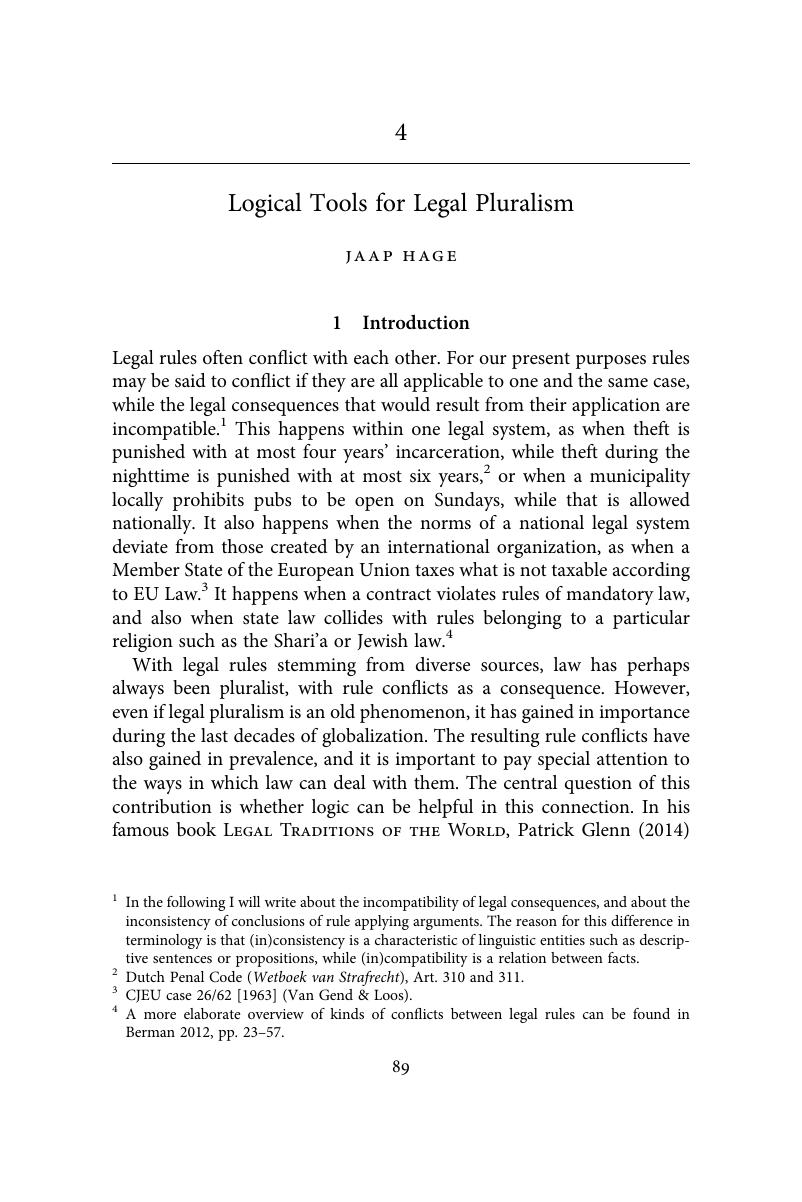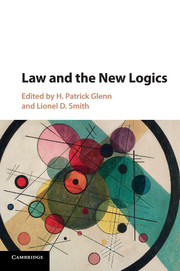Book contents
- Law and the New Logics
- Law and the New Logics
- Copyright page
- Dedication
- Contents
- Contributors
- Preface
- Part I New Logics in the Functioning of Legal Orders
- Part II New Logics in the Relations of Legal Orders
- 4 Logical Tools for Legal Pluralism
- 5 Legal Inconsistency and the Emergence of States
- 6 Political Settlement and the New Logic of Hybrid Self-determination
- 7 Choice of Logic and Choice of Law
- 8 Where Laws Conflict
- 9 Law and Equity
- Part III The Logical Debate
- Index
- References
4 - Logical Tools for Legal Pluralism
from Part II - New Logics in the Relations of Legal Orders
Published online by Cambridge University Press: 26 January 2017
- Law and the New Logics
- Law and the New Logics
- Copyright page
- Dedication
- Contents
- Contributors
- Preface
- Part I New Logics in the Functioning of Legal Orders
- Part II New Logics in the Relations of Legal Orders
- 4 Logical Tools for Legal Pluralism
- 5 Legal Inconsistency and the Emergence of States
- 6 Political Settlement and the New Logic of Hybrid Self-determination
- 7 Choice of Logic and Choice of Law
- 8 Where Laws Conflict
- 9 Law and Equity
- Part III The Logical Debate
- Index
- References
Summary

- Type
- Chapter
- Information
- Law and the New Logics , pp. 89 - 108Publisher: Cambridge University PressPrint publication year: 2017



